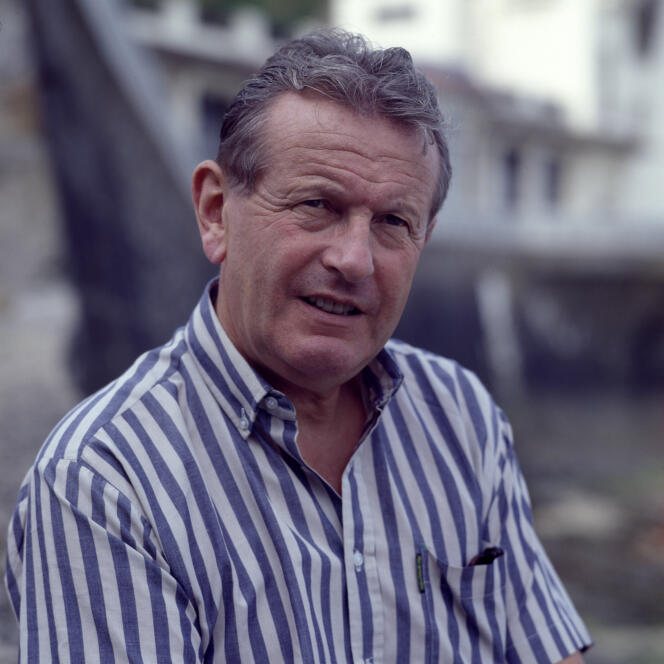


Born in Paris on March 9, 1931, Gilles Perrault (who was born Jacques Peyroles) died on August 3, 2023, in Sainte-Marie-du-Mont, the Normandy village where he chose to live with his second wife in 1961. Sitting between the church and the war memorial, his house, the exterior wall riddled with bullets, became for him a place of remembrance. He loved to walk along the D-Day beaches every day, remembering the heroic moments of June 6, 1944, to which he devoted so many pages – most notably in Le Secret du jour J (The Secrets of D-Day), published in 1964.
A popular writer with a lyrical pen and an incisive style, a blend of Norman Mailer and John le Carré, he was the author of some 50 books, some of which were translated worldwide and some which were made into films by Michel Deville, André Téchiné and Jacques Rouffio.
Perrault's admiration for his mother, Germaine Merlot-Peyroles, knew no bounds. And with good reason: a left-wing lawyer and Dreyfusist who joined the Resistance with her husband in June 1940, she was one of the Republic's first elected women. Throughout his childhood, the young boy was confronted with the ordeal of a clandestine existence, forced to silently decipher a reality based on the principle of a double life.
From this period, he retained not only a taste for secrecy but above all a precocious desire to shed light on subterranean lives, both sublime and abject: those of intelligence and espionage networks. Perrault would always choose his camp: that of the resistance fighters, whatever their moral turpitude, against that of the collaborationists, whatever their art of seduction. In 2014's Dictionnaire amoureux de la Résistance ("Loving Dictionary of the Resistance") he wrote: "To join the resistance is to sign up for torture and death. Never has heroism been such a daily occurrence; never has treason spilled so much blood and tears."
Educated at the Collège Stanislas in Paris, then at Sciences Po, he embarked on a career as a lawyer, which he abandoned after five years to make a living from his writing, after enlisting in Algeria in 1955, in the eighth colonial parachute regiment. He recounted this experience in the book that would make him famous, Les Parachutistes ("The Paratroopers"), in 1961, in which he painted a terrible picture of the despair of a generation of soldiers. He came out of it devastated, and solidly anti-colonial.
It was the publication of L'Orchestre rouge (The Red Orchestra) in 1967 that made his name. In this rigorously researched bestseller, he recounted the little-known adventure of one of the largest anti-Nazi networks, founded by Leopold Trepper, of strict Soviet allegiance, which rallied Europeans of all nationalities. Most of the 70 members were tortured, deported or executed, including 19 women.
You have 57.74% of this article left to read. The rest is for subscribers only.
